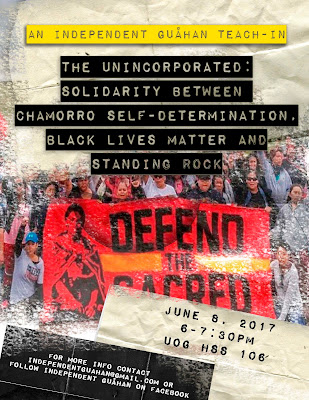Decolonization in the Caribbean #15: Solidarity Lessons

For places like Guam that lack a formal place within the international system and to an extent the national system of the US, solidarity is of critical importance. Without a formal place, you are invisible or you direct power over the structure around you. There was ways that you can fight for power, that you can seize it, but solidarity is an important part of changing your invisibility or your lack of visibility and therefore lack of relevance of standing, into something different, something more strategic. As the movement for decolonization and independence grows in Guam, it is important that we find ways to connect it to other potentially similar movements, which can offer lessons or inspirations on the way forward. This was the case in the past, where members of Nasion Chamoru achieved a greater sense of their place in the world through interacting with people who were members of Black and Brown Power movements in the US, and also from postwar elite Chamorros who felt affinity w
